
Radio transmissions have been around since the late 19th century, starting in 1894 with “wireless” transmissions of Guglielmo Marconi and his telegraphy system. In 1912, Marconi opened the world’s first radio factory, and in 1920, a station in Detroit broadcast the first radio news program. Sixty years later, CNN launched cable news, catapulting the news industry into modern broadcasting.
 However, broadcasting may become more difficult to navigate with President Trump’s proposed budget cuts, which outline the removal of federal funding from public broadcasting. Regardless, some students like Griffin Gonzalez, CHTV anchor, WHJE director and senior, remains determined to pursue broadcasting.
However, broadcasting may become more difficult to navigate with President Trump’s proposed budget cuts, which outline the removal of federal funding from public broadcasting. Regardless, some students like Griffin Gonzalez, CHTV anchor, WHJE director and senior, remains determined to pursue broadcasting.
Gonzalez said he is particularly drawn to broadcasting due to the concept of sharing news and stories with his audience.
“I love broadcasting because I like being the guy who (gets) to tell people what’s going on…It’s so cool to be able to deliver student stories, sports stories, just overall, tell a story from another perspective to an audience,” he said. “You get to tell somebody’s story, and it’s your job to tell it well…almost like their trust is being given to you, so I’ve always loved that, and I’ve had a blast doing it.”
Connor Inskeep, WHJE staff member and sophomore, said he believes people need to be informed on what’s happening, which is why broadcasting is valuable.
“People, even our age… need to know what’s going on. You can’t just live in a world that’s being controlled, and you’re just like a puppet,” he said. “You have your voice; you can be a productive member of society.”
Gonzalez and Inskeep said they plan to pursue broadcasting in order to provide their audience with the information they need, which is why radio and cable news will always be around due to this need.
Gonzalez said he specifically plans to pursue sports broadcasting even if funding is taken away.
He said, “I don’t think you can replace cable news ever… especially with the sports industry; I don’t think you can ever get rid of the sports channel.”
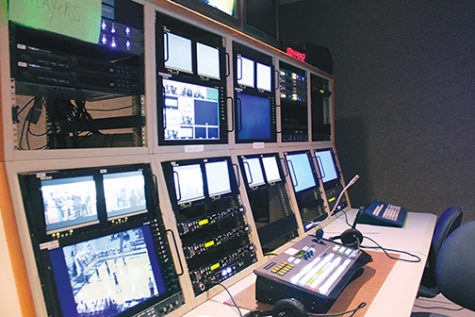
These are the screens used to monitor CHTV shows. According to CHTV adviser Anna Kaiser, despite threats of budget cuts, some students like Gonzalez still plan to pursue their passions in broadcasting.
CHTV adviser Anna Kaiser said news stations will not completely dissolve. But, she said, they might undergo changes to adjust to fewer broadcasters and accommodate social media’s role.
According to the Pew Research Center, two-thirds of Americans receive partial pieces of their news from social media. Both Kaiser and Gonzalez said changes in the industry will include creating jobs centered around social media.
Gonzalez said, “For me personally, (this trend is) teaching me early (that) if you want to be successful in this field, you need to show not only can I go on air, but I can go on social media, and I can also do this and this, and it’s challenging people who want to pursue this field to be more versatile.”
Kaiser said as more traditional jobs may be eradicated due to lack of funding, new opportunities will arise.
She said, “With the way we’re growing and the way we’re viewing news these days, I think there’s going to be more and different opportunities than there are now.”
Despite threats of budget cuts, Kaiser said around 20 students on her staff plan to pursue broadcasting every year. She said she tells students it’s important to follow their passion. 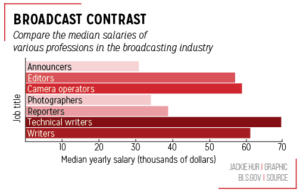
“Going into journalism…these jobs aren’t easy to get,” she said. “That takes a lot of hard work, and it might just mean they have to work that much harder to show off their skills and to really get involved in college to build their resume, just to prove that they’re an outstanding broadcast journalist.”
In fact, Inskeep said he enjoys WHJE even if he has to come in as early as 5:30 a.m. to work.
“It’s totally worth it to be here, to get all the experience to add to my resume eventually when I’m applying to colleges and hopefully doing something with radio,” he said.
Gonzalez also said he spends most of his time in the communications department.
He said, “I want to do more. I want to do more shows. I think that’s how you know you really love something because you just can’t get enough of it.”




























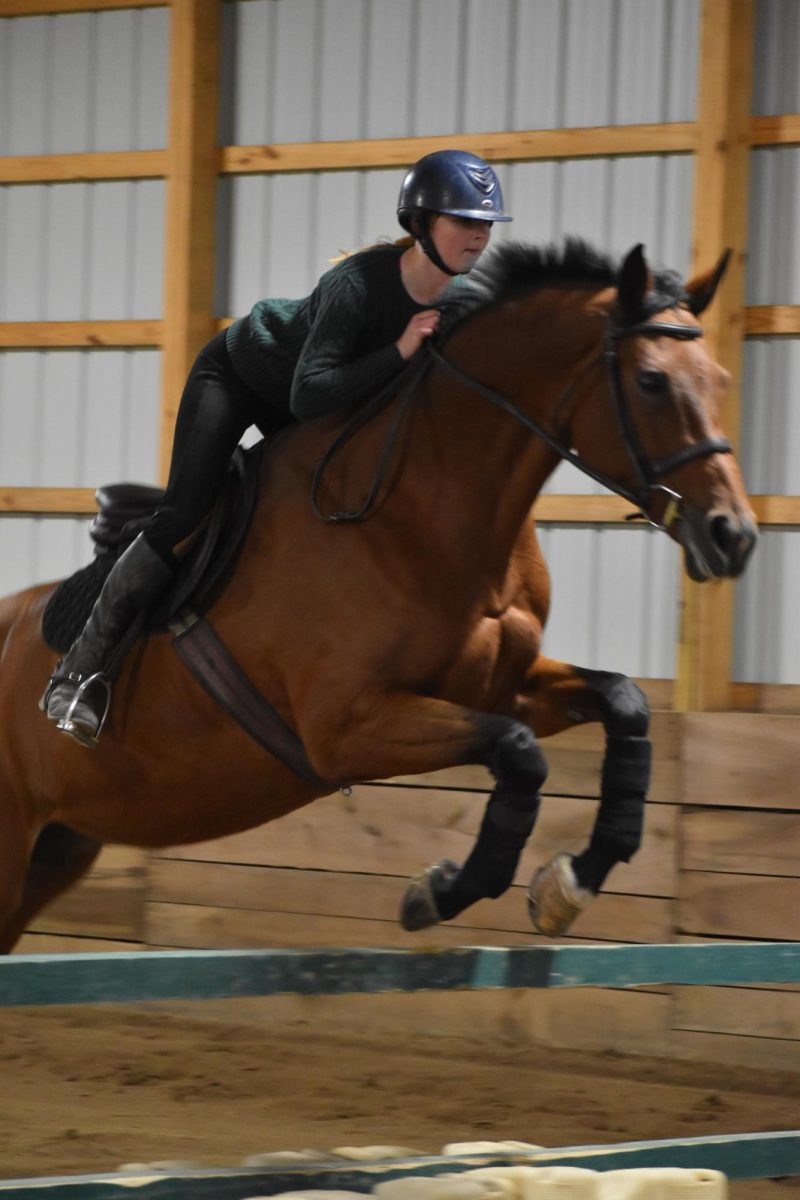





![British royalty are American celebrities [opinion]](https://hilite.org/wp-content/uploads/2024/03/Screenshot-2024-03-24-1.44.57-PM.png)



















![Chelsea Meng on her instagram-run bracelet shop [Biz Buzz]](https://hilite.org/wp-content/uploads/2024/04/IMG_2446-1200x838.jpg)
![Review: Quiet on Set: The Dark Side of Kids TV is the long awaited exposé of pedophilia within the children’s entertainment industry [MUSE]](https://hilite.org/wp-content/uploads/2024/04/unnamed.jpg)
![Review: “The Iron Claw” cannot get enough praise [MUSE]](https://hilite.org/wp-content/uploads/2024/04/unnamed.png)
![Review: “The Bear” sets an unbelievably high bar for future comedy shows [MUSE]](https://hilite.org/wp-content/uploads/2024/03/unnamed.png)
![Review: “Mysterious Lotus Casebook” is an amazing historical Chinese drama [MUSE]](https://hilite.org/wp-content/uploads/2024/03/0.webp)
![Review in Print: Maripaz Villar brings a delightfully unique style to the world of WEBTOON [MUSE]](https://hilite.org/wp-content/uploads/2023/12/maripazcover-1200x960.jpg)
![Review: “The Sword of Kaigen” is a masterpiece [MUSE]](https://hilite.org/wp-content/uploads/2023/11/Screenshot-2023-11-26-201051.png)
![Review: Gateron Oil Kings, great linear switches, okay price [MUSE]](https://hilite.org/wp-content/uploads/2023/11/Screenshot-2023-11-26-200553.png)
![Review: “A Haunting in Venice” is a significant improvement from other Agatha Christie adaptations [MUSE]](https://hilite.org/wp-content/uploads/2023/11/e7ee2938a6d422669771bce6d8088521.jpg)
![Review: A Thanksgiving story from elementary school, still just as interesting [MUSE]](https://hilite.org/wp-content/uploads/2023/11/Screenshot-2023-11-26-195514-987x1200.png)
![Review: When I Fly Towards You, cute, uplifting youth drama [MUSE]](https://hilite.org/wp-content/uploads/2023/09/When-I-Fly-Towards-You-Chinese-drama.png)
![Postcards from Muse: Hawaii Travel Diary [MUSE]](https://hilite.org/wp-content/uploads/2023/09/My-project-1-1200x1200.jpg)
![Review: Ladybug & Cat Noir: The Movie, departure from original show [MUSE]](https://hilite.org/wp-content/uploads/2023/09/Ladybug__Cat_Noir_-_The_Movie_poster.jpg)
![Review in Print: Hidden Love is the cute, uplifting drama everyone needs [MUSE]](https://hilite.org/wp-content/uploads/2023/09/hiddenlovecover-e1693597208225-1030x1200.png)
![Review in Print: Heartstopper is the heartwarming queer romance we all need [MUSE]](https://hilite.org/wp-content/uploads/2023/08/museheartstoppercover-1200x654.png)






















![Review: Ladybug & Cat Noir: The Movie, departure from original show [MUSE]](https://hilite.org/wp-content/uploads/2023/09/Ladybug__Cat_Noir_-_The_Movie_poster-221x300.jpg)

![Review: Next in Fashion season two survives changes, becomes a valuable pop culture artifact [MUSE]](https://hilite.org/wp-content/uploads/2023/03/Screen-Shot-2023-03-09-at-11.05.05-AM-300x214.png)
![Review: Is The Stormlight Archive worth it? [MUSE]](https://hilite.org/wp-content/uploads/2023/10/unnamed-1-184x300.png)


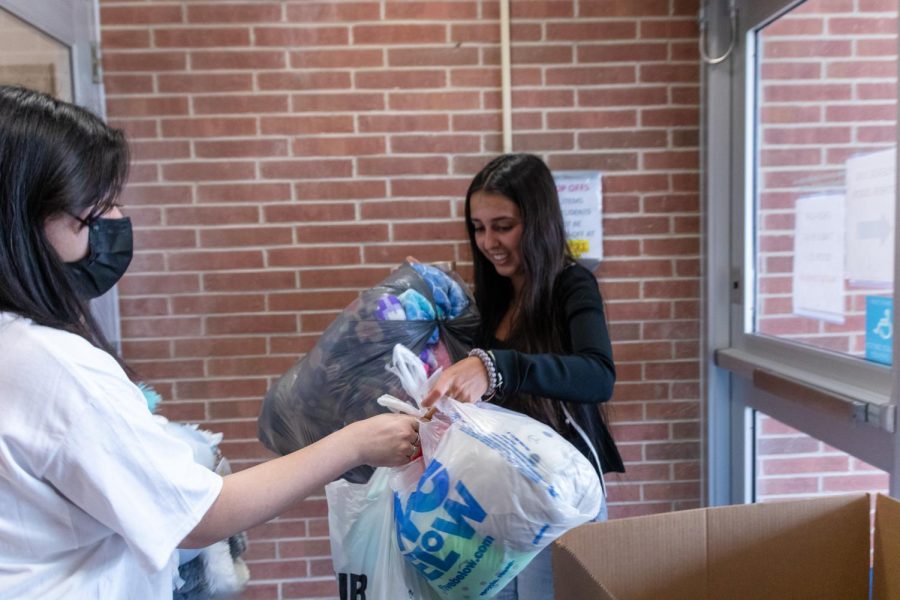
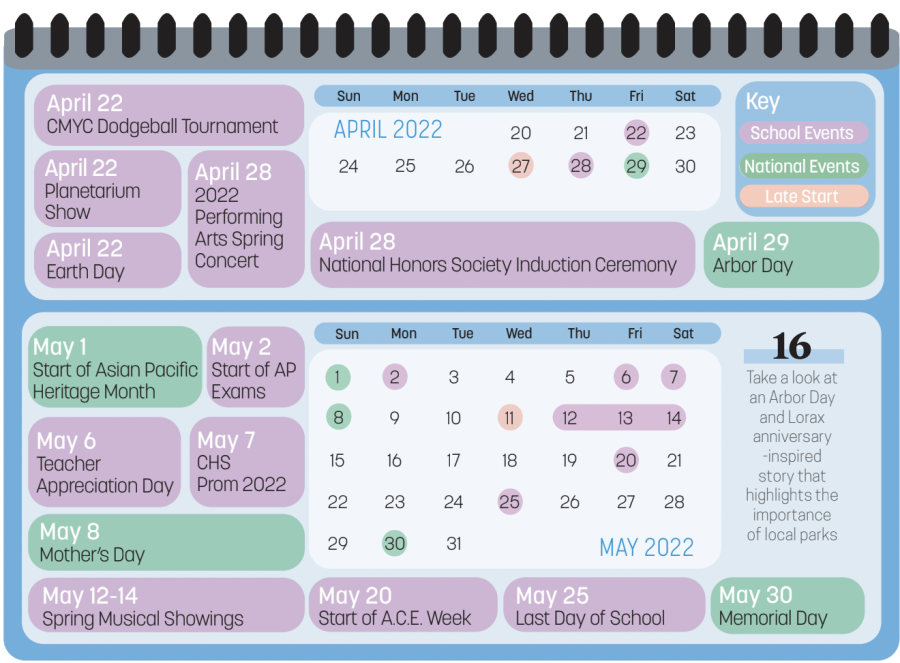
![Seniors Jillian Rang and Athul Ramkumar practice their presentation at the DECA state competition on March 5, 2024. Arya Patel, DECA paper head and junior, said, As they [students] begin to make their final preparations, its important to remember that making it to this point is an incredible achievement.](https://hilite.org/wp-content/uploads/2024/04/IMG_8285-1200x800.jpg)